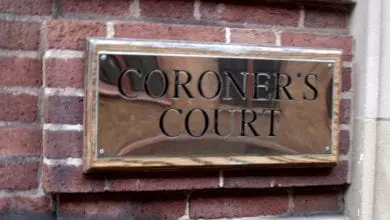New ‘Guide to Coroner Services’ aimed at the bereaved
The bereaved will be put “at the heart of the coroner system”, Justice Minister Simon Hughes has announced, with the launch of a new guide for people who have to become involved with inquests.
The new ‘Guide to Coroner Services’ explains in simple terms to bereaved people how the inquest process works, what they should expect, what standards of service they should receive, how to find help and what to do if they were not satisfied by the service.
The guide is the latest stage of government’s drive to modernise the coroner system and make sure that bereaved families can receive the same standards of service from all 96 coroners in England and Wales, bringing an end to past inconsistencies.
It follows the introduction last year of new national standards and the appointment of the first ever Chief Coroner, Judge Peter Thornton QC, to oversee the new system and drive improvement.
Launching the guide Justice Minister Simon Hughes said: “I want people to know that coroners’ courts needn’t be scary places, they can be open and welcoming, and that is why we are making absolutely sure that the needs of bereaved families are put first and foremost.”
The guide follows the new coroner rules implemented last year, which mean that coroners will be required to notify those who are bereaved within a week of setting the date for the inquest and provide greater access to documents and evidence, such as post-mortem reports, before the inquest takes place, to enable bereaved families to prepare for the hearing.
They must also be able to speed up the release of bodies after post mortem and will be required to notify the deceased’s next-of-kin or personal representative if the body cannot be released within 28 days, and permit less invasive post-mortem examinations.




